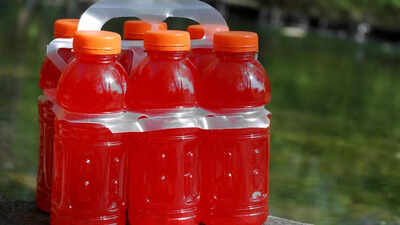ARTICLE AD BOX

Energy drinks have surged in popularity as a quick solution for fatigue and low energy, especially among adolescents and young adults. However, recent studies reveal a concerning connection between energy drinks and hypertension, highlighting the risk of elevated blood pressure after consumption.
Ingredients like caffeine, sugar, and taurine can acutely raise systolic and diastolic blood pressure, while chronic use may contribute to long-term cardiovascular complications. Understanding how energy drinks increase the risk of high blood pressure is crucial for consumers and healthcare professionals seeking to prevent hypertension and protect heart health.
The key ingredients in energy drinks that raise blood pressure
Energy drinks are popular for a quick energy boost, but their key ingredients can significantly affect heart health.
Caffeine stimulates the nervous system, raising heart rate and blood pressure. Taurine, an amino acid, may enhance performance but can add strain when combined with caffeine. High sugar content contributes to weight gain and insulin resistance. Consuming these drinks in large amounts or frequently can lead to temporary spikes in blood pressure and, over time, increase the risk of hypertension and other cardiovascular problems.
Ingredients at a glance:Caffeine – increases heart rate and blood pressureTaurine – boosts energy, may stress the heartSugar – leads to weight gain and insulin resistance
Acute effects of energy drinks on blood pressure: Insights from the study
A comprehensive meta-analysis published in the Annals of Pharmacotherapy examined the effects of acute energy drink consumption on blood pressure parameters. The study revealed that consuming energy drinks led to:Increased Systolic Blood Pressure (SBP): An average rise of 5–10 mmHg.Elevated Diastolic Blood Pressure (DBP): A notable increase observed.Higher Heart Rate: A significant uptick post-consumption.These effects were more pronounced in individuals with pre-existing hypertension or those sensitive to caffeine. The study underscores the potential cardiovascular risks associated with energy drink consumption, particularly for vulnerable populations.
How long-term consumption of energy drinks impacts heart and hypertension
Long-term consumption of energy drinks can have serious health consequences.
While occasional use may cause temporary spikes in blood pressure, habitual intake increases the risk of lasting cardiovascular and metabolic problems.1. Persistent hypertension – Regular consumption of energy drinks can keep blood pressure consistently elevated, increasing strain on the heart and arteries. Over time, this may lead to long-term damage to blood vessels and organs such as the kidneys.2. Increased cardiovascular risk – Habitual intake raises the likelihood of serious heart problems, including heart attacks, strokes, and irregular heart rhythms.
The combination of caffeine, sugar, and other stimulants can trigger sudden spikes in blood pressure, which may be particularly dangerous for vulnerable individuals.3. Metabolic issues – High sugar content and excessive calories in energy drinks can contribute to weight gain, insulin resistance, and obesity. These metabolic problems not only affect heart health but also increase the risk of type 2 diabetes and other chronic conditions.
Who’s more at risk from energy drinks
Certain groups are more susceptible to the adverse effects of energy drinks:
- Adolescents: Studies indicate that high consumption during adolescence can lead to lasting cardiovascular issues.
- Individuals with pre-existing conditions: Those with hypertension or heart disease are at heightened risk.
- Caffeine-sensitive Individuals: People who metabolize caffeine slowly may experience exaggerated effects.
It's crucial for these populations to be particularly cautious with energy drink consumption.
Recommendations for consumers
To mitigate the risks associated with energy drinks:
- Limit Intake: Restrict consumption to one or two servings per week.
- Monitor blood pressure: Regularly check blood pressure levels, especially if consuming energy drinks.
- Choose alternatives: Opt for healthier energy-boosting options like herbal teas or adequate sleep.
By being informed and cautious, consumers can enjoy energy boosts without compromising cardiovascular health.Disclaimer: This article is for informational purposes only and does not constitute medical advice. Always consult a qualified healthcare professional before making any changes to your health routine or treatment.



.png)
.png)
.png)
















 15 hours ago
3
15 hours ago
3








 English (US) ·
English (US) ·